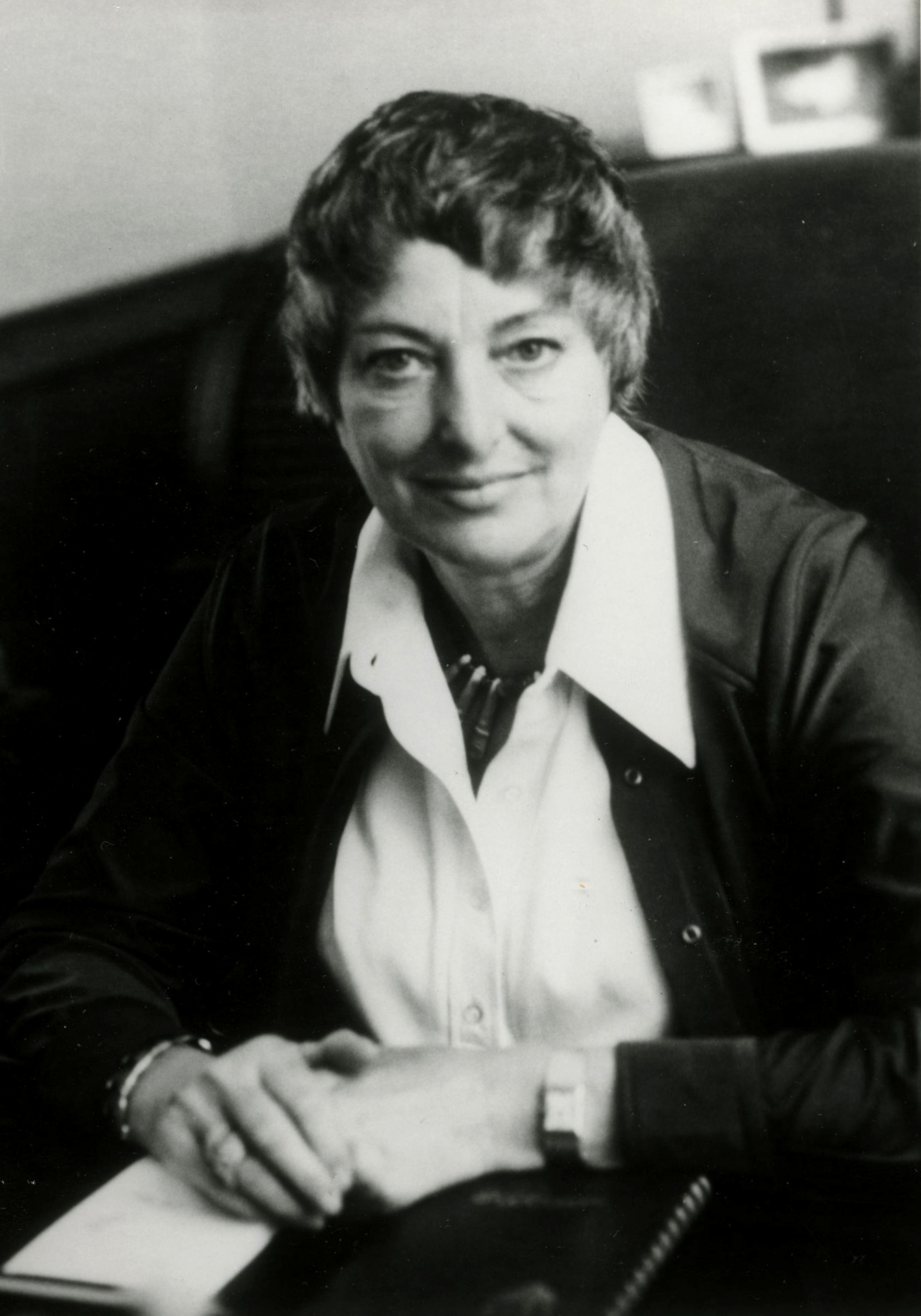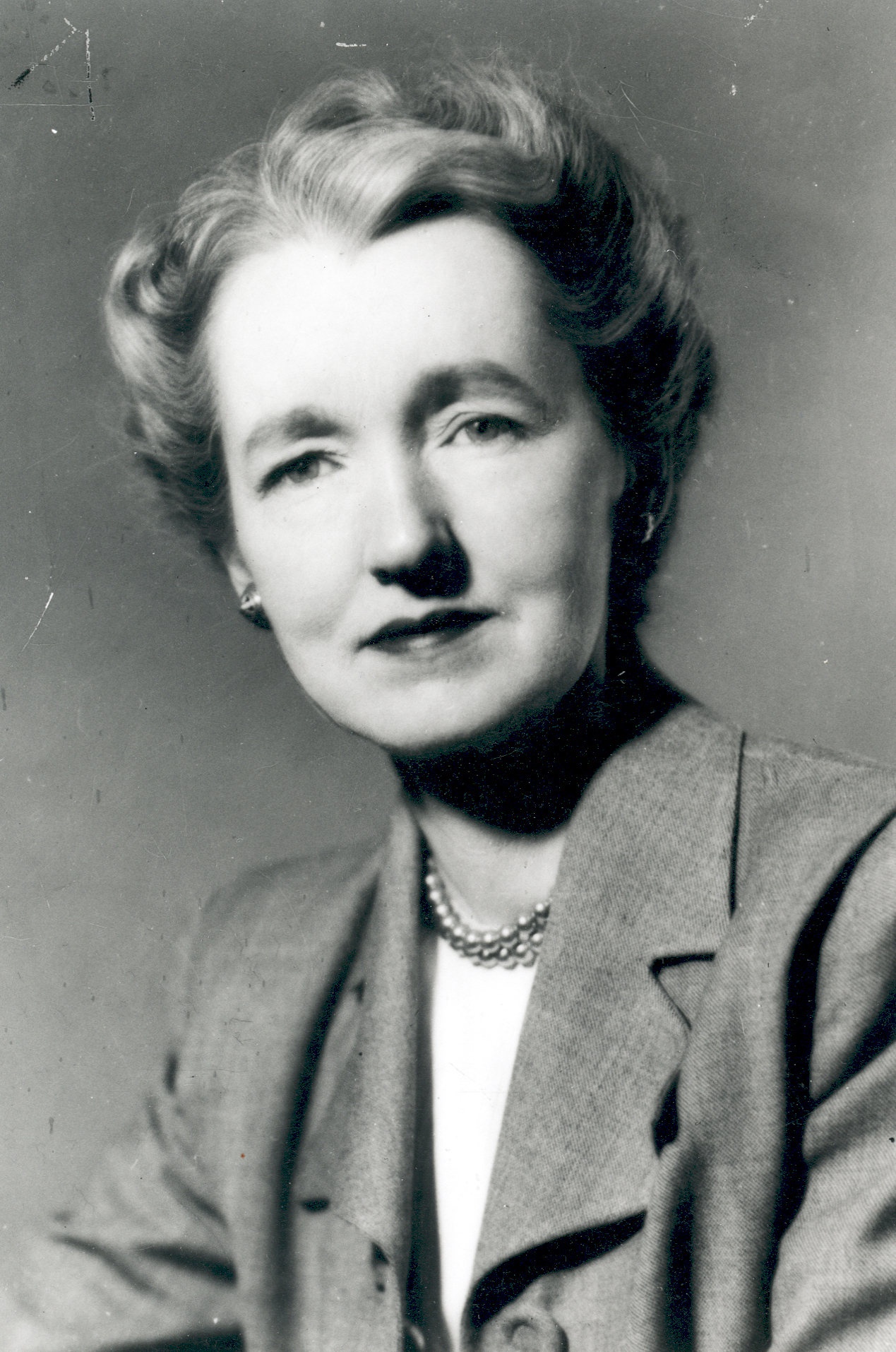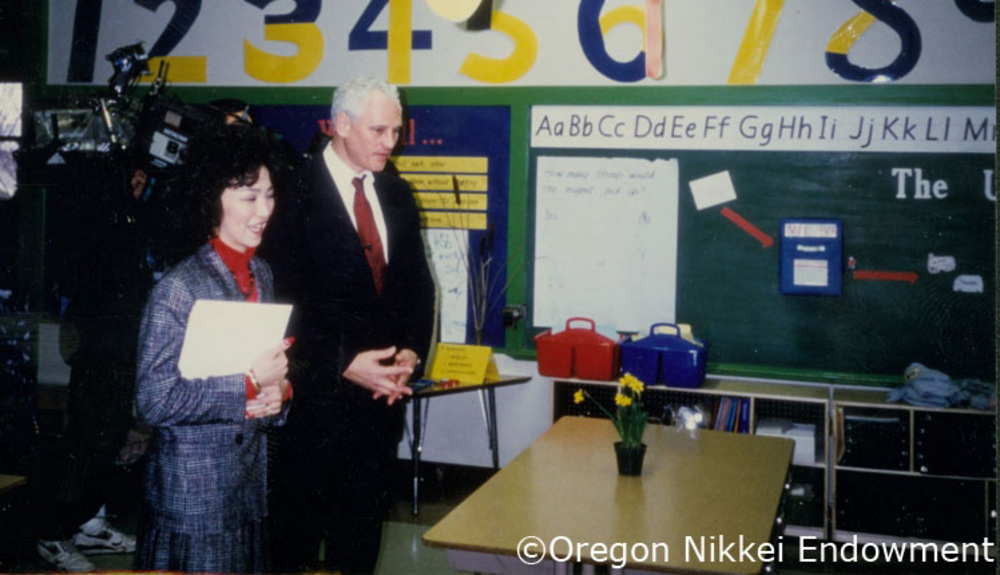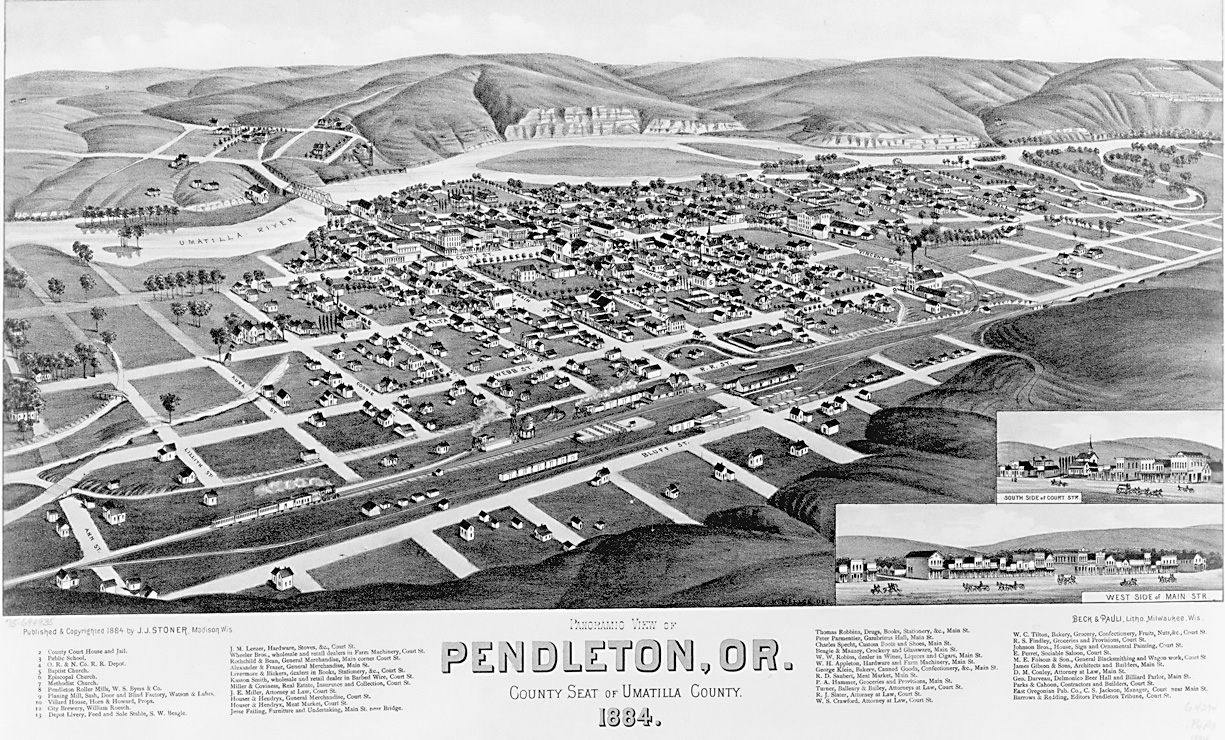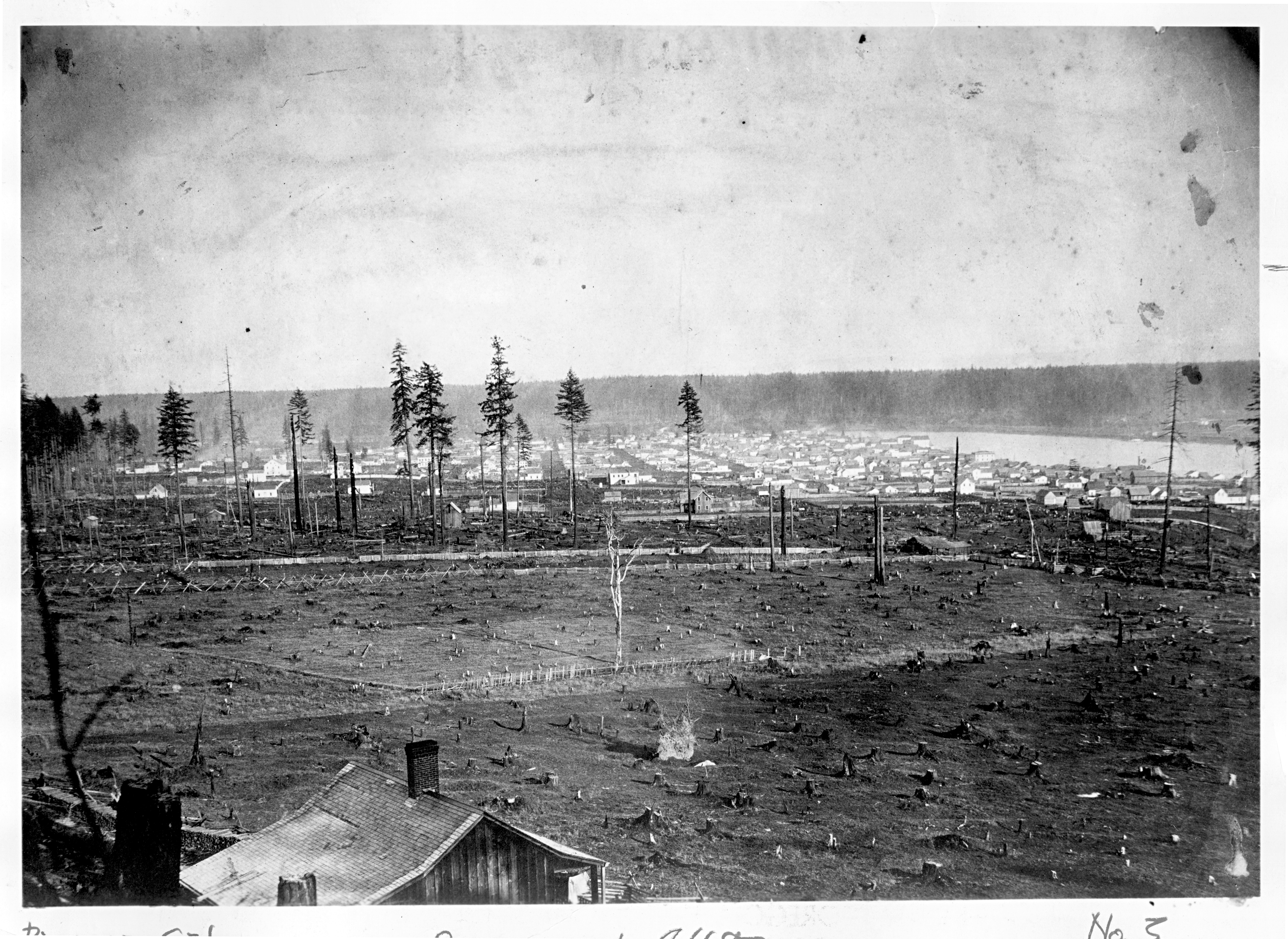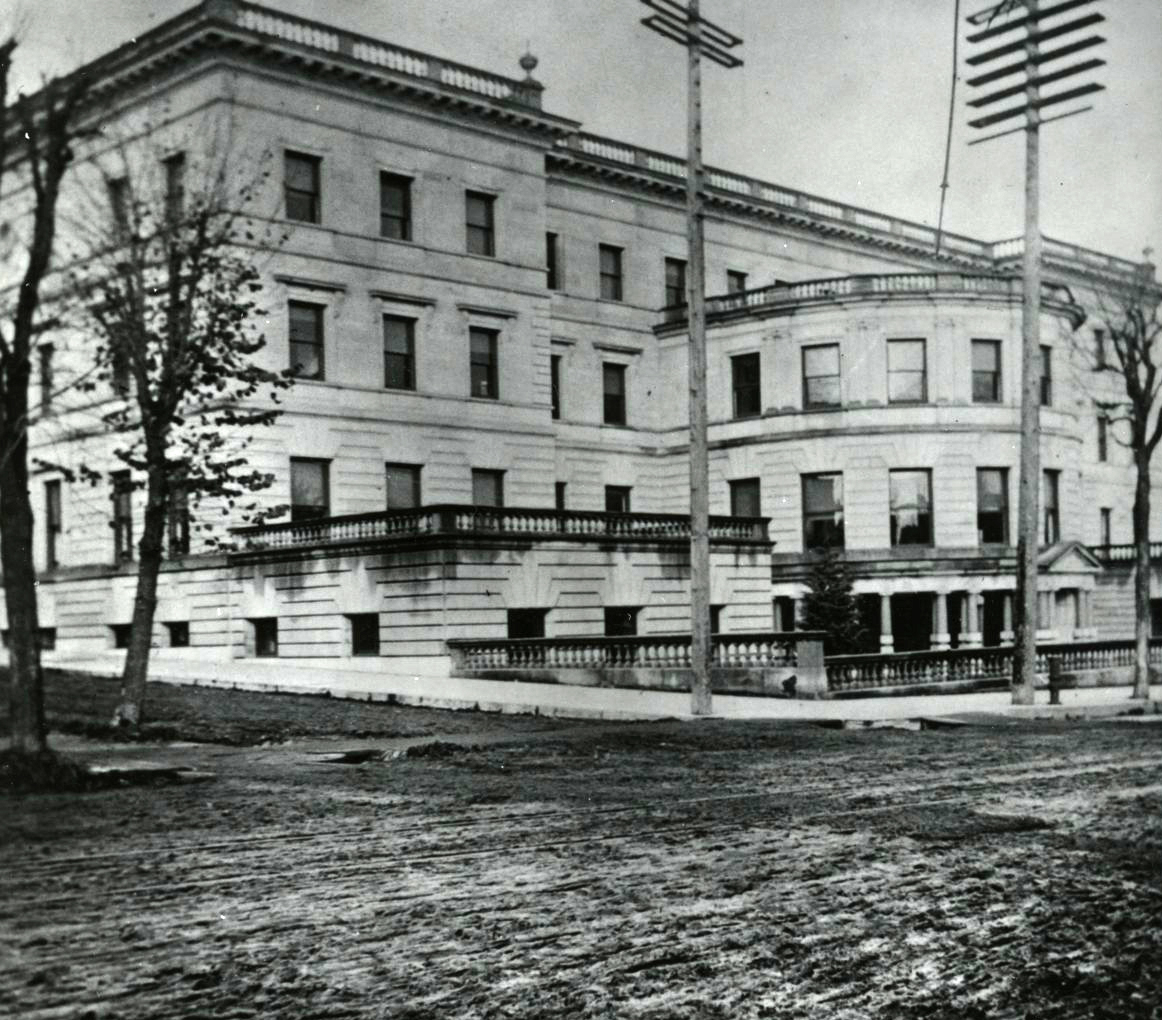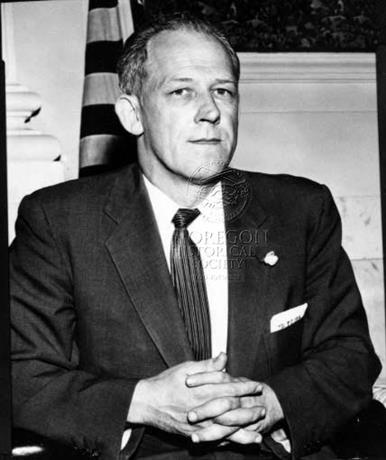Connie McCready was the second woman to serve as mayor of Portland, at the end of a fourteen-year political career that included two terms as a state representative and nine years on the Portland City Council. A lifelong Republican, she was a self-described maverick in her political positions and was in the vanguard of women’s involvement in politics and newspaper work. Her strong support of the Equal Rights Amendment included taking the controversial step of ordering city employees under her control not to travel on official business to states that had not ratified the amendment. She gained a reputation for talkativeness and was slow to take positions, which she explained was due to being nervous speaking in public and a desire to study all aspects of issues.
Constance Averill McCready was born in Pendleton on August 20, 1921, to Edgar and Laura (Coutts) Averill. Her father wrote for the Pendleton East Oregonian and later contributed to the Oregon Journal; he also was an active citizen lobbyist on outdoor and conservation issues. The Averill family moved to northeast Portland when Connie was four years old. She attended Grant High School, graduating in 1939, and received a degree in journalism from the University of Oregon in 1943.
After college, Connie Averill worked for about six months on the Coos Bay Times before joining the staff of the Oregonian in December 1943. Many of the men who worked at the newspaper were in the military, opening up positions for women in a field that had been mostly closed to them. Starting as a reporter, she became assistant military editor and worked on the newspaper’s Sunday magazine. “I was a reporter,” she later recalled, “when they thought the only place for a woman in the newsroom was in the wastepaper basket or out the window.”
She married Albert L. McCready on New Year’s Eve 1945, after his return to the Oregonian from wartime service in the U.S. Navy. She left her job at the paper but returned in 1956 to become the editor of the Home and Garden magazine. Al McCready was named associate editor of the Oregonian in 1956, assistant managing editor in 1971, and managing editor in 1976. He retired in 1982.
Connie McCready’s involvement in public affairs included participation on a citizen committee that recruited candidates for the Portland Public Schools Board and service on the board of the League of Women Voters. She ran for a seat in the Oregon House of Representatives in 1966, easily defeating four candidates—all of them men—in the Republican primary election and then winning the general election with about 51 percent of the vote for position 2 of the East Central Subdistrict. She easily won reelection in 1968.
In the 1967 legislative session, McCready was one of five women in the sixty-member House of Representatives; she was one of four in 1969. She later recalled her annoyance at the patronizing treatment she received from some of her male colleagues. While in the legislature, she introduced and gained passage of measures that made steelhead a game fish; created what was to become the Tri-County Metropolitan Transportation District (TriMet), the Portland-area public transit system; and expanded the state’s fair employment practices law.
In 1970, McCready was appointed to a vacancy on the Portland City Council created by the death of Commissioner Stanley Earl. Taking office on March 19, she won election to the seat two months later and was re-elected in 1972 and 1976. In Portland’s government structure, commissioners are in charge of specific departments, and McCready was appointed by Mayor Terry Schrunk to manage the Fire Bureau and the buildings division.
After Commissioner Neil Goldschmidt was elected mayor in 1972, he appointed her to be in charge of the Public Works Bureau, where she cut the budget but also saw more streets paved than her predecessor and gained a reputation as a detail-oriented manager. She sometimes clashed with Goldschmidt over his assertive management style but generally supported his progressive policies, including weatherizing buildings and increasing neighborhood density. She also supported TriMet against opposition from business interests and the regional Metropolitan Service District.
When Goldschmidt resigned in 1979 to become U.S. Secretary of Transportation, the City Council appointed McCready mayor, breaking a deadlock between Commissioners Charles Jordan and Frank Ivancie. She took office on September 5. She was defeated in the May 1980 primary, however, by the more conservative Ivancie. At the end of her term on November 24, she retired from politics. Before leaving office, she endorsed Democrat Jimmy Carter for the presidency, citing his support for energy conservation and civil rights.
Connie McCready died on December 22, 2000, at the age of seventy-nine.
-
![]()
Connie McCready, 1994.
Courtesy Oregon Hist. Society Research Lib., SR1148_Image01
-
![Commissioner (1970-1979)
Mayor (1979-1980)]()
Connie McCready.
Commissioner (1970-1979) Mayor (1979-1980) Courtesy Oregon Hist. Soc. Research Lib., Org Lot 691, Box 1 f6
Related Entries
-
![Dorothy McCullough Lee (1902-1981)]()
Dorothy McCullough Lee (1902-1981)
In 1947, the city of Portland crawled with gambling halls, strip joints…
-
![Neil Goldschmidt (1940-2024)]()
Neil Goldschmidt (1940-2024)
Neil Edward Goldschmidt, the thirty-third governor of Oregon (1986-1991…
-
![Pendleton]()
Pendleton
Pendleton, a city of 17,107 in the 2020 census, sits in the foothills o…
-
![Portland]()
Portland
Portland, with a 2020 population of 652,503 within its city limits and …
-
![Portland Commission Government]()
Portland Commission Government
Portland's commission form of municipal government, which the city adop…
-
![Terry Schrunk (1913-1975)]()
Terry Schrunk (1913-1975)
Terrence Doyle "Terry" Schrunk served as mayor of Portland for sixteen …
Map This on the Oregon History WayFinder
The Oregon History Wayfinder is an interactive map that identifies significant places, people, and events in Oregon history.
Further Reading
McCready, Constance Averill , interviewed by Clark Hansen, March 21, 1994-July 5, 1994, 1981. Oregon Historical Society Research Library, Portland.
Jenning, Steve. “McCready faces fight of her political life.” Portland Oregonian, May 14, 1980.
Williams, Linda. “McCready proud of her record, goals met.” Sunday Oregonian, November 23, 1980.
Williams, Linda. “McCready shuns GOP to endorse Carter bid.” Portland Oregonian, October 30, 1980.


